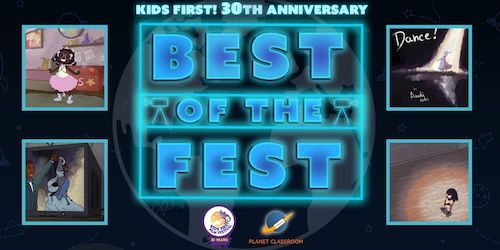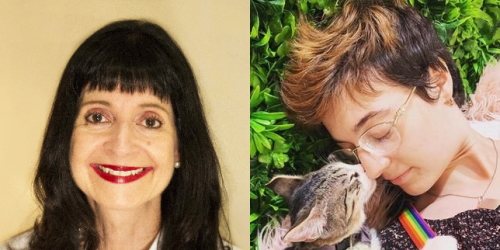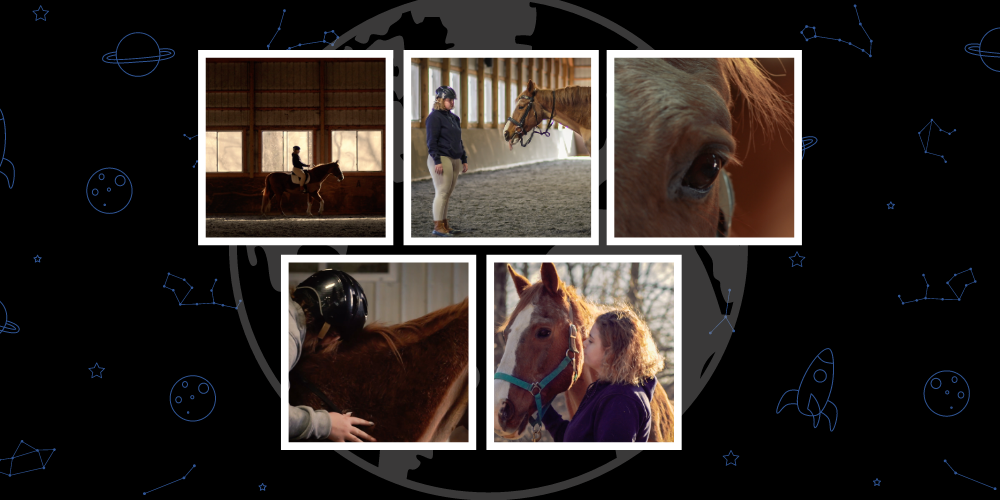Filmmaker Andrea (Andy) Mangano was born in Maryland but grew up in Sicily where she studied Philosophy, History, Grammar, and Literature, and also won various regional dance sport competitions. She was a self-taught artist until she moved back to the States in 2016 to study animation in California.
Andy is the director and animator of Dance!, selected for Best of the Fest 2021 by KIDS FIRST! in association with the Planet Classroom Network. Dance! is the story of a young girl who, after seeing a video of a beautiful dancer, decides to become one too. However, the girl is very shy… will dancing help her gain more confidence in herself?
The Global Search for Education is pleased to welcome Andy Mangano.
This video focuses a lot on role models who inspire us. Did you have any childhood heroes who inspired you?
I clearly remember spending the summers at my grandma’s house, and there I would love to stare at the sparkly dresses my aunt used for her dance competitions. Eventually I grew up to join her dance school, and the experience helped me gain more confidence and become a responsible adult. I spent a lot of time with her when I lived in Sicily, so I wanted to make a video dedicated to that experience and connection I had with dancing.
I love the animation style you selected with its deeply water-colored features and jewel-toned colors. Given the primary target audience of the video, I wondered what made you decide to select this design style as opposed to more traditional primary colors?
I have a background in oil painting, and palette knife painting is my favorite medium outside of digital animation. I really wanted to bring that same textured look in the short, which is mostly seen in the backgrounds. In terms of characters, I avoided overly saturated colors in order to make the style more cohesive.
When the little girl first gets in the dance studio, the colors are bright and tend to go to a very light yellow. That’s in opposition with the beginning of the film, when the girl feels comfortable. In my film, overly bright colors are shown in moments when our protagonist is scared, and darkness is meant to feel like a protective blanket. As she grows up, the girl puts in effort to become more comfortable with scary things such as a spotlight, and she does.
This subversion of symbolism in light vs. dark is also a note on racism, and how in our history and media we have consistently associated white and light with purity and superiority, and how we have used that association to create systems of suppression for people.
In the scene where the little girl arrives at the dance studio, she is very scared. Is this based on the idea that taking new chances is scary for every child or was it more to do with the self-confidence and identity of this particular character?
For this particular character, it’s about self-confidence and identity, since that is a trait I share with her. The idea was that she is spirited, curious, and enthusiastic, but she is shy and needs time to open up to new environments.
What influenced your creative decision to produce this story without any dialogue?
I love taking on a challenge, and being able to express without words is one of my favorite things about art (and dancing!). The short, the whole story, would not be the same with dialogue. Think about that scene at the beginning of UP, the Pixar film: would have it been as impactful with dialogue, or isn’t it exactly the lack of dialogue that makes it more emotional?
What do you hope will be the audience’s key takeaways from your film?
You never know how your efforts, your struggles, and your personal story have influenced others! We as people are connected in ways that can be hard to imagine, but that link between the self and your community is something that not only we need to be aware of, but also fight for.
C.M. Rubin and Andy Mangano
Don’t Miss Dance!, selected for Best of the Fest 2021 by KIDS FIRST! in association with the Planet Classroom Network.







Recent Comments